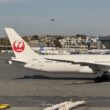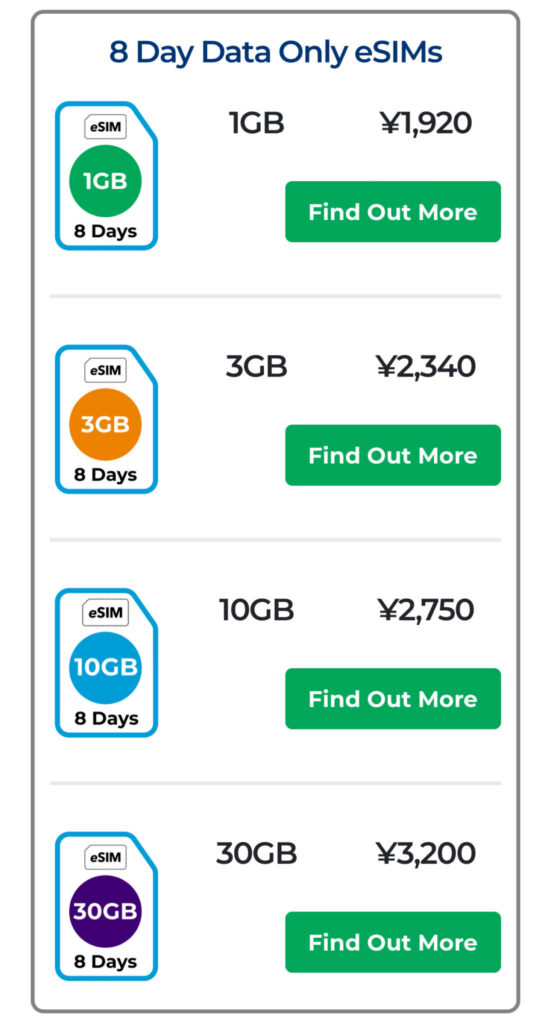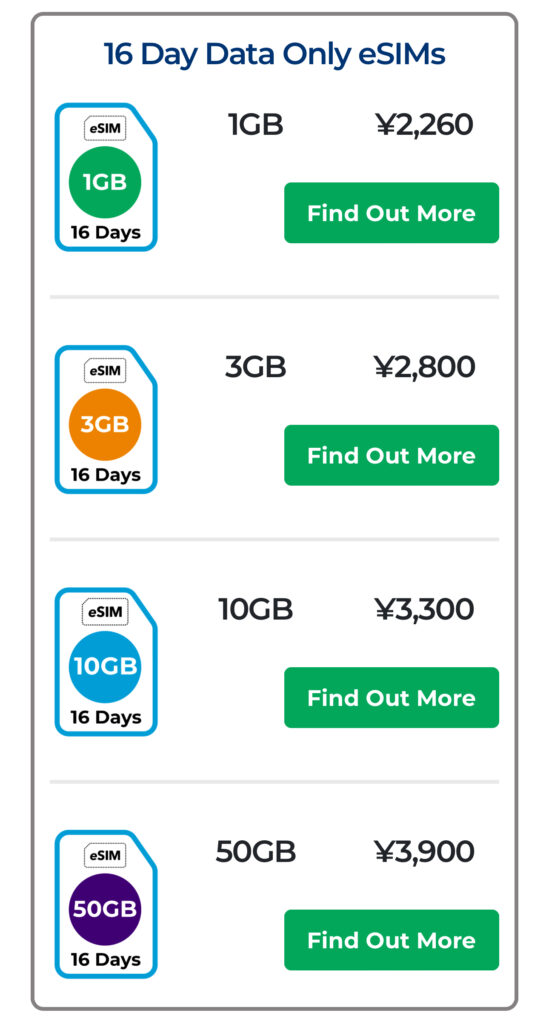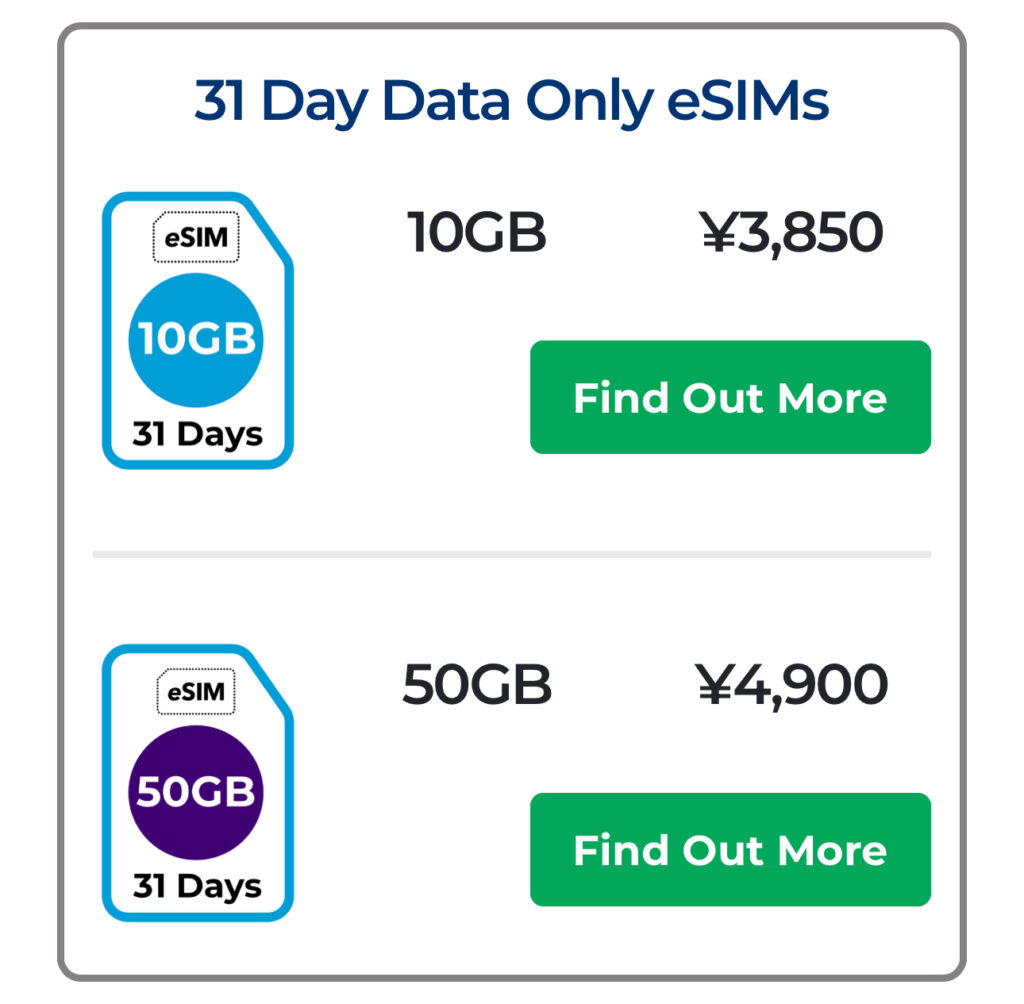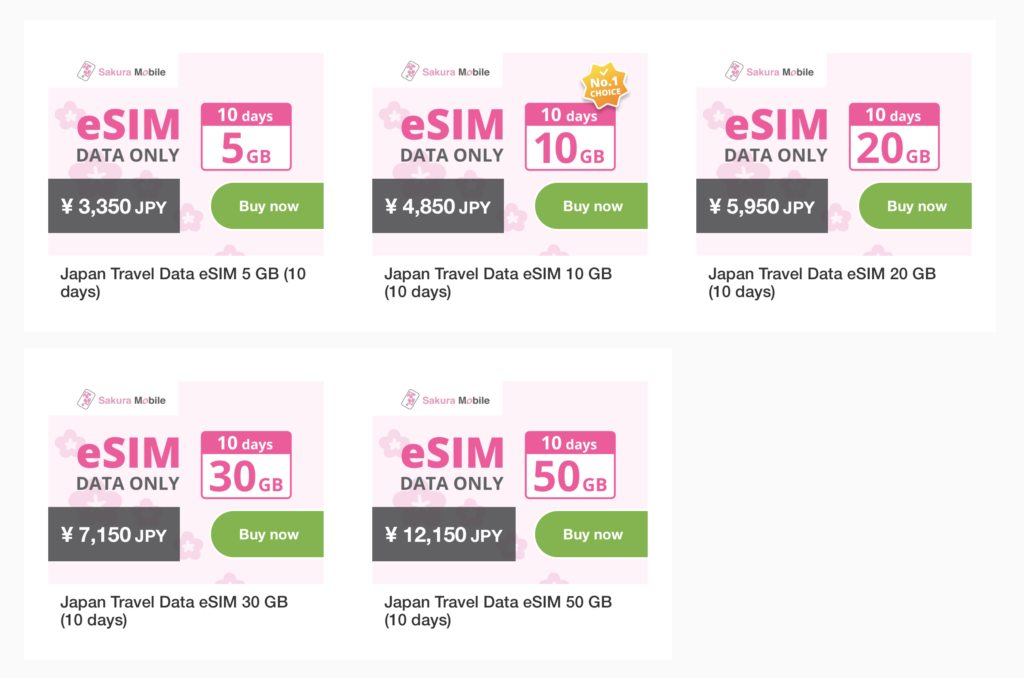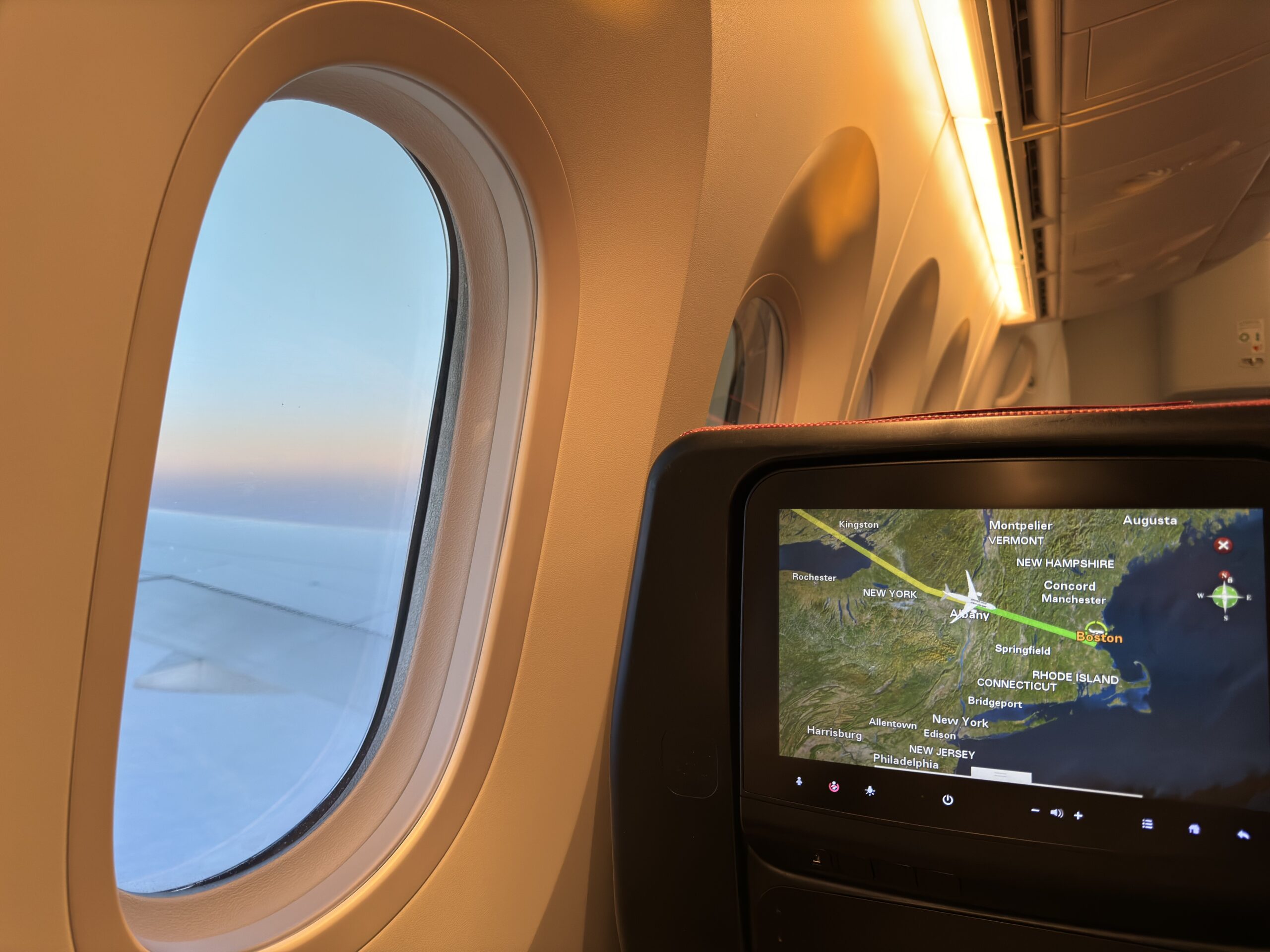I recently talked about a travel SIM card I used when I was in Japan recently for 27 days. I used the Mobal Japan SIM card and I had a great experience. In addition to Mobal.com, I came across many other travel SIM card options for Japan when doing research. Read below for an overview of my 5 favorite options.
1. Mobal Japan SIM
Link: Mobal.com
It’s only fair to begin with the SIM card I used for my recent Japan trip. My experience with Mobal had a smooth and easy setup, with a fast LTE connection utilizing the SoftBank network. Click here for a more detailed review, but here are some of the important points.
Mobal offers regular SIM cards as well as eSIM. I recommend eSIM if your phone is compatible (for iPhone users, the XR/XS/XS Max and later will work). They’re cheaper and there’s no need to go to a shop to pick up the physical card. Above are the eSIM pricing plans.
Their prices aren’t bad, and with the weak Japanese yen, I think these are very good deals.
- 1 USD to 151.64 JPY as of April 9, 2024.
They use the SoftBank 4G LTE network, so you can expect fast internet speeds throughout the country. There’s also no data cutoff, so you’ll have the full 4G LTE connection until you reach your data limit. Mobal also has English customer support, so in case you need assistance, you won’t have to face a language barrier.
2. Sakura Mobile
Link: sakuramobile.jp
Sakura Mobile is another popular option. They offer similar pricing plans and offer strong connections through the Docomo network. They seem to strongly advertise their unlimited data plans with regular SIM cards.
Sakura Mobile is on the pricer side, but unlimited data gives the benefit of not having to worry about data usage at all.
Their eSIM plans are more expensive. I recommend sticking with their unlimited plans if you’re going with Sakura.
Docomo’s 4G LTE, the largest carrier in Japan, is the provider. You can pick up your SIM card in several locations, such as at the airport, their office, or wherever your place of stay may be. Theirs comes pre-activated, meaning that it’ll be ready for use right out of the package. Personal hotspot/tethering is also available.
3. Ubigi eSIM
Link: cellulardata.ubigi.com
Ubigi is a prepaid, global cellular network provider. With network destinations around the world, you will find a ton of convenient options. In addition to a trip to Japan, you can purchase connections for other countries as well.
You can find data plans for each country by selecting them in the search bar.
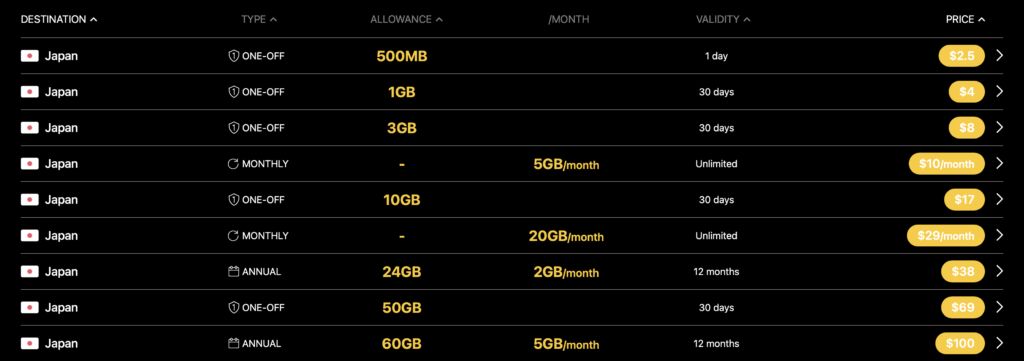
Here are the results for prepaid eSIMs in Japan. They have a wide range of plan periods, ranging from 1 day, 30 days, all the way to 12 months. There are also many options for the amount of data, ranging from 500MB to 60GB. Note that payments are made with your home currency.
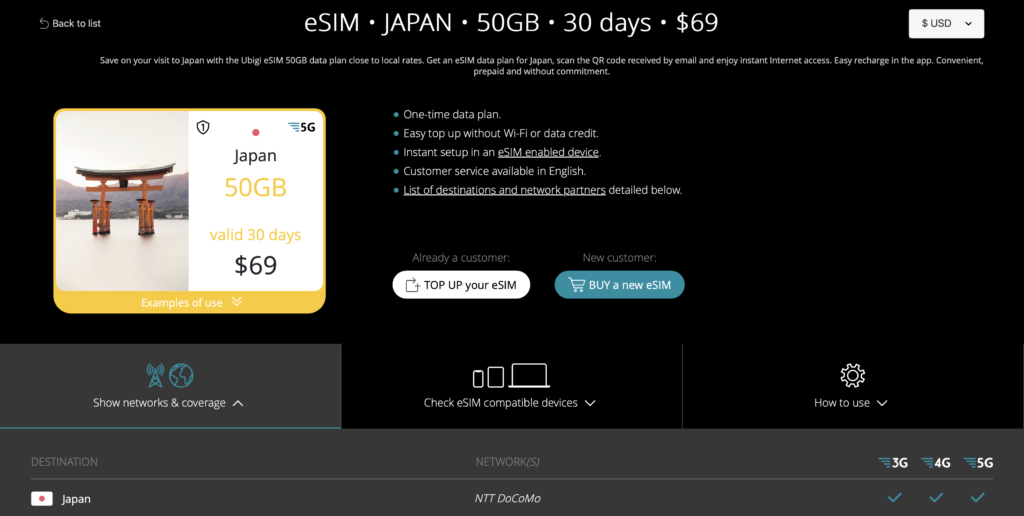
The plan you should choose will depend heavily on your usage and how long you’ll be staying in Japan. I like this 50GB plan that’s valid for 30 days. They use the Docomo network, and some plans are available with 5G. If you ever need assistance, you’ll have English customer support as well.
4. Nippon SIM
Link: nipponsim.jp
Nippon SIM is another provider and has good options for longer stays. Here’s a quick look at some of the options they offer:
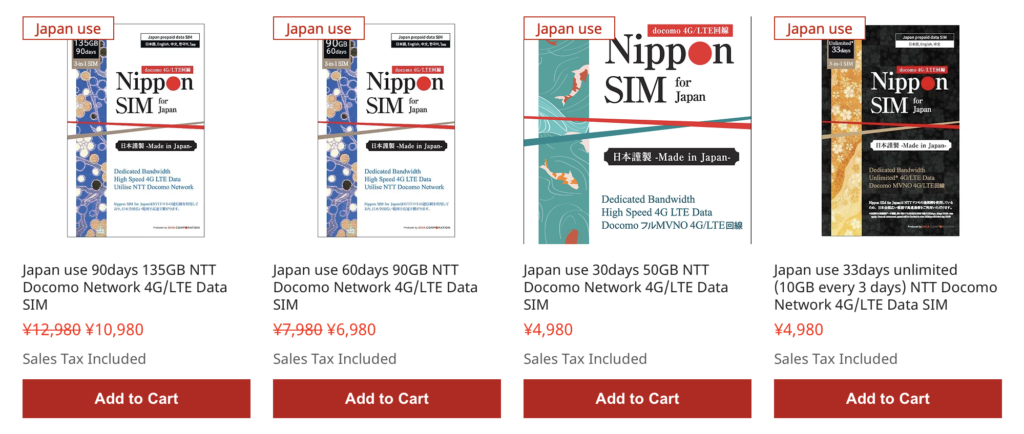
The 4980 JPY plans pop out to me as good-looking plans. Note that the 33-day unlimited one has a cap of 10GB every 3 days, which shouldn’t be a problem unless you’re a heavy user. If you’re in Japan for longer, these 60-day and 90-day plans seem very good for the price.
All of these use the Docomo 4G LTE network. As mentioned earlier, they’re a reliable network covering almost every part of the country. They’re also pre-activated, so they’ll be ready for use right out of the package.
5. Buying a SIM at the Airport
Buying one at the airport is always an option. If you forget to get one and you immediately need a cellular connection, airports are always there to help.
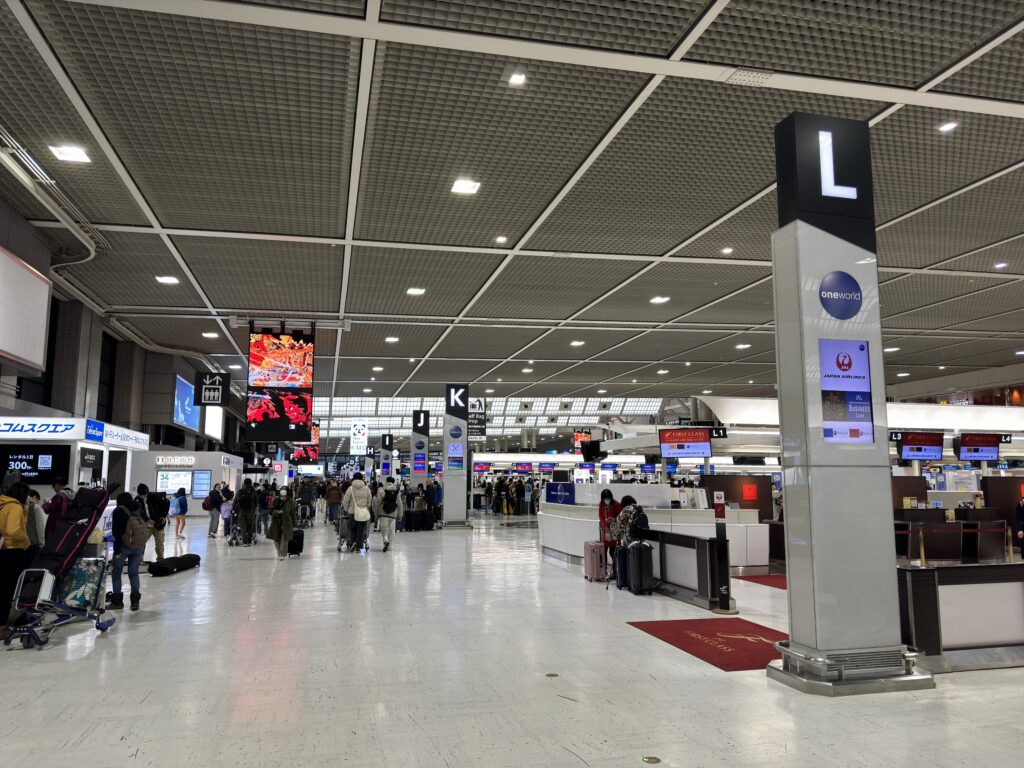
You’ll find both vending machines and shops selling SIM cards. However, I would avoid buying them at the airport (especially the vending machines) as they tend to be much more expensive than getting them online or elsewhere. Only use these as a last resort option.
Bottom Line
The data plan you should choose depends on your usage habits and how long you’re staying in Japan. Since I’m a heavy user, I went with a 50GB plan for my recent 30-day trip. If you plan to share data with a travel partner, one with a personal hotspot option is something to think about. You also may consider a higher usage plan if you’re traveling for work. Although there are many things to consider, but know that these 5 are all strong options. Enjoy planning your trip!



